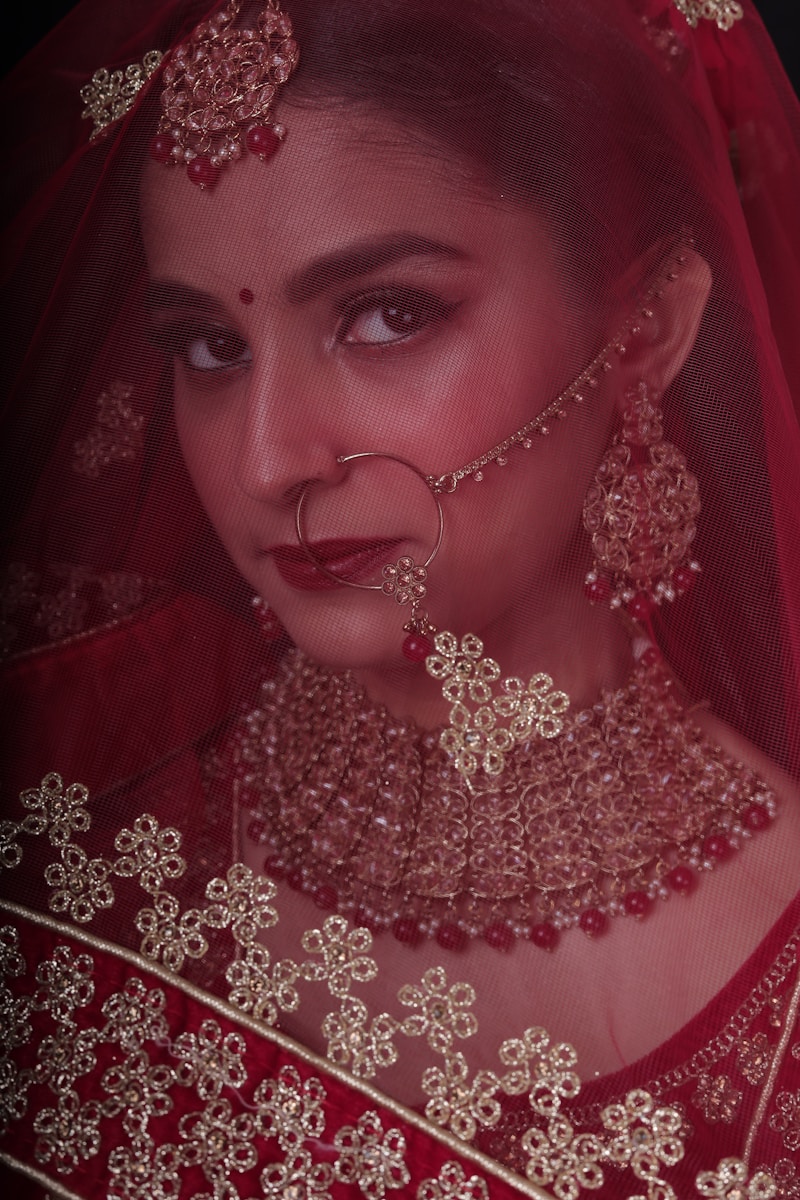The Significance of Makeup in Cultural Wedding Ceremonies
The Significance of Makeup in Cultural Wedding Ceremonies
Makeup plays a pivotal role in cultural wedding ceremonies across the globe. It is not merely a beauty enhancer; it is rich in symbolism, tradition, and ceremony. From the vibrant colors of Indian bridal makeup to the subtle elegance seen in Western weddings, makeup serves as a canvas that reflects the culture, identity, and emotions tied to these significant life events. In this article, we will explore the importance of makeup in various cultural wedding traditions, the different styles and meanings associated with them, and the emotional impact they have on brides and families alike.
Understanding the Cultural Importance of Bridal Makeup
Bridal makeup is intertwined with cultural practices and reflects the values and beliefs of societies. It can signify purity, beauty, status, and even spiritual protection. Different cultures have their interpretations of what makeup represents, making it a fascinating subject to explore. Below is a table summarizing some key cultural significances of makeup in various regions:
| Region | Makeup Style | Significance |
| India | Bright and bold colors with intricate designs | Symbolizes wealth, beauty, and tradition |
| China | Subtle shades with red accents | Represents prosperity and happiness |
| Japan | Minimalistic beauty with natural tones | Highlights purity and simplicity |
| Western cultures | Varied styles from natural to glamorous | Displays personal identity and creative expression |
Regional Makeup Styles in Depth
1. Indian Bridal Makeup
Indian weddings are known for their elaborate ceremonies and vibrant celebrations. Makeup for Indian brides is not only about looking beautiful; it also tells a story of cultural history. Typically, the bride’s makeup is characterized by:
- Bold Colors: Shades of red, gold, and bright pink are popular, representing auspiciousness and joy.
- Mehndi (Henna): Intricate designs on hands and feet signify beauty and celebrate femininity.
- Jewelry: Use of heavy traditional ornaments enhances the overall look.

The detailed makeup often takes hours to complete and involves the work of skilled artists who can create looks that are both breathtaking and culturally meaningful.
2. Chinese Wedding Makeup
In Chinese culture, weddings are joyous occasions that focus on prosperity, luck, and honor. Bridal makeup in China typically includes:
- Red Accents: Red is a fortunate color and is often used in makeup to symbolize happiness and wealth.
- Natural Look: While bold colors may be applied, the overall look tends to favor elegance and simplicity.
- Bride's headdress: Incorporates elaborate traditional designs that complement the makeup.
These elements work together to form a look that is both respectful of tradition and reflective of the bride’s unique style.
3. Minimalistic Japanese Aesthetics
Japan embraces a more subdued approach to bridal makeup, focusing on natural beauty and elegance. Key aspects include:
- Soft Colors: Ivory, pale pinks, and soft peaches enhance the bride's natural features without overwhelming them.
- Minimalism: The idea is to accentuate rather than change one’s look, promoting inner beauty.
- Kimono and Obijime: The traditional garments worn by brides are complemented by the subtle makeup.
By opting for minimalistic styles, Japanese brides convey an appreciation for simplicity and tradition.
The Emotional Significance of Makeup
Makeup in wedding ceremonies is not solely for aesthetic purposes. It carries profound emotional weight for the bride and her family. Here are a few emotional aspects of bridal makeup:
- Confidence Booster: Many brides feel empowered and confident with their wedding makeup, as it enhances their natural features, allowing them to feel beautiful on their special day.
- Tradition and Legacy: Makeup rituals are often passed down through generations, creating a sense of connection and legacy between brides and their ancestors.
- Symbol of Love: The process of getting ready can be a bonding experience between the bride and her close friends or family members, reinforcing relationships and shared experiences.
Makeup thus becomes a form of self-expression and a link to tradition, each stroke of the brush carrying the weight of culture and family history.
Modern Makeup Trends in Weddings
While traditional makeup styles remain significant, modern trends have influenced bridal makeup across cultures. Some of these trends include:
- Airbrush Makeup: This technique provides a flawless finish that is long-lasting, ideal for weddings.
- Personalized Makeup: More brides opt for unique, personalized makeup that represents their individual style rather than strictly following traditional norms.
- Eco-friendly Products: A growing emphasis on sustainability has brought about an increase in organic and eco-friendly makeup products.
These modern innovations facilitate a marriage of tradition and contemporary aesthetics, showing that makeup can adapt while still respecting its cultural roots.
Conclusion and Recommendations
Makeup holds immense significance in cultural wedding ceremonies globally. It is an essential aspect of beauty that transcends mere appearance, representing tradition, identity, and emotion. Whether it’s the vibrant hues of an Indian bride or the subtle elegance of a Japanese bride, makeup enhances the cultural storytelling woven into each wedding ceremony.
For brides planning their special day, consider the following recommendations:
- Research: Understand the cultural significance of bridal makeup in your tradition.
- Consult a Professional: Consider hiring a makeup artist who specializes in your cultural style to ensure authenticity and quality.
- Personal Touch: Don’t hesitate to incorporate your unique style into traditional looks.
In conclusion, whether rooted deeply in tradition or bending toward modernity, makeup remains a vital element of weddings worldwide, enriching the experience for brides, their families, and the cultures they honor.
